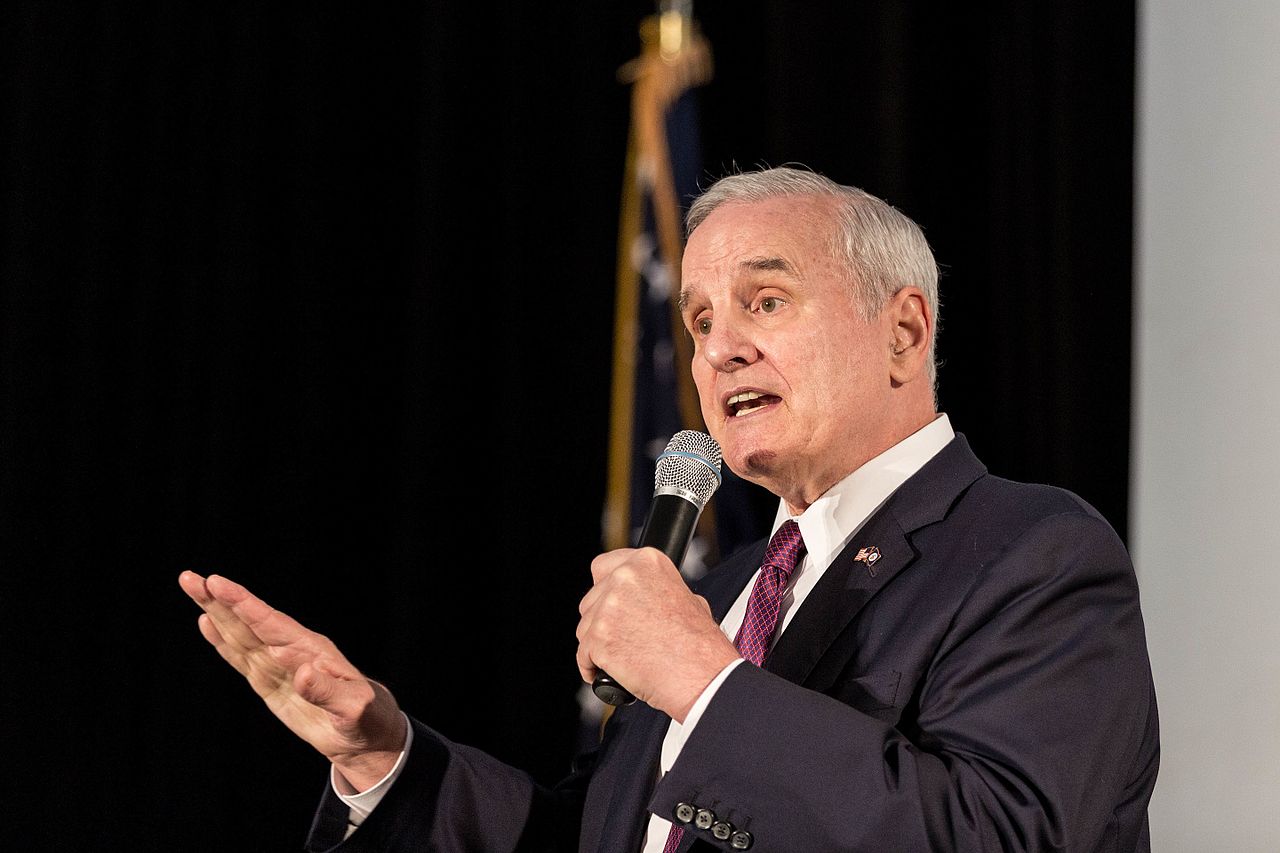Minnesota budget battle ends in mediation, and that’s a good thing
A contentious lawsuit between the State Legislature and the Governor has come to an end.
Photo Courtesy of Lorie Shaull (Labeled for Reuse)
Governor Mark Dayton and the Republican Legislature worked to find common ground.
On September 8, the Minnesota Supreme Court ruled in a case so consequential that it could change how governors or the legislature operate from now on. After a five month long court battle between Governor Mark Dayton and a Republican led Legislature, the Minnesota Supreme Court ruled that both sides had to sit down for mediation to settle their differences, a decision that favors the right side of this argument: Dayton.
It started back in April, when Legislative Leaders——led by Speaker of the House Kurt Daudt (R) and Senate Majority Leader Paul Gazelka (R)——were working with Dayton on the Budget Plan for Minnesota. Although the Federal Government is allowed to spend as much as it wants (say hello to being $20,000,000,000,000-or two trillion-dollars in debt), our state government can only spend as much money as it actually has. Because of this, it is imperative that both the Legislature and the Governor (who signs off on the budget) work together so that they can sign a budget bill by May 1, the last day that the MN Legislature is in session.
This year, the budget became a lot more contentious than usual. Minnesota had a surplus of money, meaning we had to find a way to spend extra money. Horrible problem, right? However, this problem became more complicated as both Republicans and Democrats fought over what to do with the money. Republicans, generally, would like this surplus of money to be given out to the people in basic checks—money that people can use for whatever they want. Dayton and the Democrats, meanwhile, would rather put this money into the budget by increasing funding for several institutions, such as public schools.
This surplus, along with problems that were perplexing both Republicans and Democrats (such as taxes on cigarettes) became a central argument for both sides. By the time that the budget was due, however, it seemed like both sides had come to a compromise. Dayton agreed with the Republican leaders, and they passed the budget bill through the Legislature.
Then, it came to Dayton’s desk. And, although Dayton signed the bill, he changed it in one way: He line-item vetoed funding for the Legislature. Essentially, he approved all of the budget except for one part of it, which he crossed out of the final version
This meant that, although everything he and the Republicans talked about now was signed into the budget, what was lacking were the personal pay checks for all legislative members plus the money necessary to run the Legislature——such as the money for the janitorial staff, general upkeep, and everything else that goes into physically running the Legislature. Republicans, upset with the line-item veto, challenged its legality in court. Now, several months and several hotly released statements later, the courts have decided that both sides need to meet together to reach an agreement——exactly what Mark Dayton wanted.
At first glance you may be thinking the Republicans who challenged the veto are in the right. I mean, Dayton did act like he agreed with them, then changed his mind and set off this whole thing, right? Well, the details become a little murky when we look at the bill itself. In it, there was a provision that may have forced Dayton’s hand: If he hadn’t signed the bill, the Department of Revenue would have lost all of its funding.
The Department of Revenue is the department that helps collect taxes, and uses the revenue from the taxes for companies and citizens. Essentially, if Dayton hadn’t agreed to the demands of the Republicans, it would be near impossible to collect taxes and no one would get money from the government.
That’s kind of a big deal.
So, when looking at the whole situation, it is pretty clear that everyone involved was scummy. That’s politics though, right? The Republicans, with their larger numbers, tried to coerce Dayton into signing a bill that he didn’t agree with by basically blackmailing him, and in response, he took away all of their money. Is there really a hero in this story?
Dayton, although it was entirely unfair to stop funding for the Legislature, did it with the goal of coming to an actual agreement between the two sides. If he had not signed the bill, all of us Minnesotans would have suffered. Instead, he fought back against the Republicans to ensure that both sides could actually come to an agreement and find common ground——not blackmailing each other and performing shady politics to achieve their ends. And, if out of all of this mess we can find some level of bipartisanship, I think it was worth it.




































![Teacher Lore: Mr. Hillman [Podcast]](https://bsmknighterrant.org/wp-content/uploads/2025/03/teacherlorelogo-1200x685.png)





